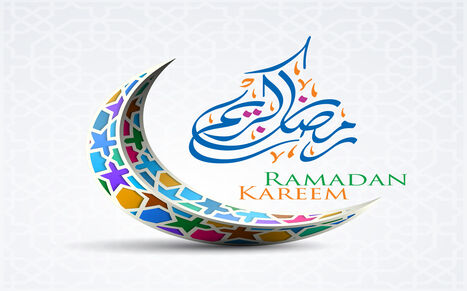Table of Contents Show
Ramadan is a significant month for Muslims around the world, representing a time of fasting, reflection, and spiritual growth. The term “Ramadan Kareem” is often used during this holy month, conveying warm wishes and blessings to others. Understanding its meaning in Arabic can deepen our appreciation for this sacred time.
Meaning of Ramadan Kareem in Arabic
In Arabic, “Ramadan” (رمضان) refers to the ninth month of the Islamic lunar calendar, during which Muslims fast from dawn until sunset. The word itself is derived from the Arabic root “Ramiḍa,” which means “to be hot” or “to be scorched,” reflecting the intense heat of the month in the Arabian Peninsula.
“Kareem” (كريم) translates to “generous” or “noble.” When combined, “Ramadan Kareem” can be interpreted as “Generous Ramadan” or “Noble Ramadan.” This phrase embodies the spirit of the month, emphasizing the importance of generosity, kindness, and compassion. During Ramadan, Muslims are encouraged to give to those in need, engage in charitable acts, and strengthen their community ties.
The Significance of Fasting
Fasting during Ramadan is one of the Five Pillars of Islam, making it a fundamental practice for Muslims. The fast, known as “Sawm,” is not just a physical act of abstaining from food and drink; it is also a time for spiritual reflection, self-discipline, and increased devotion. The practice aims to foster empathy for the less fortunate and to purify the soul through prayer and meditation.
Cultural Expressions of Ramadan Kareem
The phrase “Ramadan Kareem” is commonly exchanged among Muslims as a greeting during the month. It reflects the communal spirit of Ramadan, where individuals come together to share meals, prayers, and acts of charity. Many people decorate their homes and mosques with lights and banners that display this sentiment, creating a festive atmosphere that adds to the sense of unity and celebration.
In various cultures, the greeting may also be accompanied by special dishes and family gatherings. Each country has its own unique traditions for breaking the fast, known as “Iftar,” which may include a variety of local delicacies.
Conclusion
“Ramadan Kareem” is more than just a greeting; it encapsulates the essence of the month of Ramadan. It reminds us of the values of generosity, compassion, and community, encouraging individuals to reflect on their actions and contribute positively to society. As Muslims around the globe observe this holy month, the spirit of “Kareem” serves as a guiding principle, inspiring acts of kindness and a deeper connection to faith.










